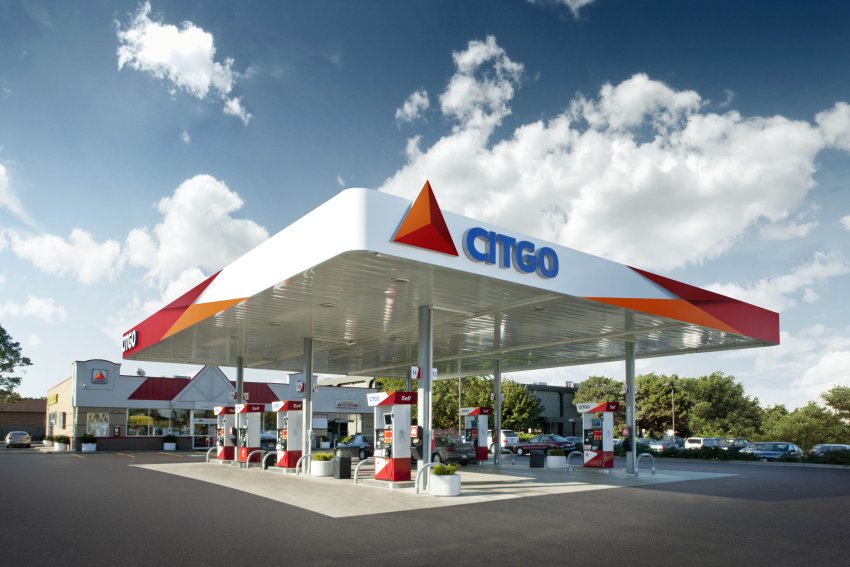
For many years, the United States government, under Republicans and Democrats, has tried to strangle Venezuela’s Bolivarian revolution by seizing its assets and imposing severe economic sanctions on the country.
In one of the most drastic of these measures, the US courts have mandated the auction of CITGO Petroleum, Venezuelan state-owned oil refining company, based in Texas.
CITGO is valued at US$11–13 billion and has a processing capacity of 769,000 barrels per day split between three refineries in Illinois, Louisiana and Texas, according to Venezuela Analysis. It also owns a pipeline network and more than 4000 service stations, mostly on the US east coast.
A long-running legal case to determine who has the right to auction CITGO is still going through the US courts and still may not be resolved for some time.
Why is CITGO being auctioned?
It all began when Canadian gold mining company Crystallex International Corporation — which became one of the largest mining concession holders in Venezuela in 2000 — was denied an environmental permit to mine gold at the Las Cristinas site near Ciudad Dorada in Venezuela’s Bolivar state, in 2008.
The La Cristinas deposit is estimated to hold more than 10 million ounces of gold, making it one of the largest gold deposits in Latin America. The mine was opposed by small-scale miners and indigenous groups over the potential environmental damage and disruption to local indigenous communities it would cause.
Crystallex began litigating for losses relating to the “indirect expropriation” of the Las Cristinas mine in 2011. In April 2016, Crystallex won their case in the International Centre for Settlement of Investment Disputes, run by the World Bank, and was awarded compensation of $1.2 billion, with interest.
In August 2018, a US federal judge ordered the Venezuelan government to immediately pay bonds towards the $1.2 billion allegedly owed to Crystallex or to provide shares of PDV Holding (PDVH), CITGO’s parent company.
Crystallex initiated proceedings in a Delaware District Court after US sanctions stopped the Venezuelan government from making payments on the arbitration award. The Delaware district judge launched a sale of PDVH shares in October 2022 to satisfy claims from 18 creditors totalling US $21.3 billion, mostly stemming from international arbitration awards.
Compounding the theft was the US government decision in 2019 under President Donald Trump to recognise failed right-wing opposition candidate Juan Guaidó as Venezuela’s “interim president”. The White House gave Guaidó control of Venezuela’s US-based assets, blocking the elected government of Nicolás Maduro from defending Venezuela’s interests in the US legal system.
This had drastic ramifications, according to VA. “The Guaidó group’s handling of finances and public statements likewise allowed several corporations to win “alter ego” court rulings and tag their claims to the Delaware auction, ballooning the liabilities significantly past CITGO’s valuation and hampering any possibility of off-court settlements with creditors.”
Guaidó and his lawyers failed to appear in court for more than a year. This allowed oil and gas giant ConocoPhillips to attach its debt to the Delaware proceedings. Together with malpractice, incompetence and conflicts of interest in the handling of CITGO’s legal affairs, Guaidó’s actions allowed ConocoPhillips to secure a default ruling to execute a massive $8.5 billion award from the US Arbitration Tribunal, of so-called Venezuelan nationalised debts owed to US companies.
ConocoPhillips launched an aggressive strategy to collect on its claims, including launching legal efforts in countries where PDVSA holds assets. US corporations also want to seize future proceeds from joint natural gas deals between Venezuela and Trinidad and Tobago.
CITGO now has total liabilities and debts of US$21.3 billion, almost double its value.
CITGO is Venezuela’s most valuable foreign-based asset. Maduro has denounced its seizure as the “theft of the century”.
Robert Pincus, who was appointed by US courts to organise the CITGO auction, selected Amber Energy, an affiliate of vulture fund Elliott Investment Managements, as the winning bid in the CITGO process in September. It had put in the highest offer of $7.3 billion. This falls significantly short of CITGO’s real valuation and the decision has received criticism from creditors.
CITGO labeled Amber Energy as a “weeks-old shell corporation with no assets and no committed financing” in its court documents.
In addition to the CITGO theft, the British government is still holding nearly $2 billion of Venezuelan gold reserves, which were seized in 2019, following that government’s recognition of Guaidó as president. Despite opposition parties voting to oust Guaidó and dissolve his parallel government in late December, the British government has refused to release the gold.
As a result of lack of access to foreign currency, it is estimated that 100,000 Venezuelans have died due to lack of imported medical supplies.
This case study shows how US and other Western imperialist governments engage in “lawfare” to steal the legitimate assets of Global South countries, especially those without a compliant, pro-Western government.